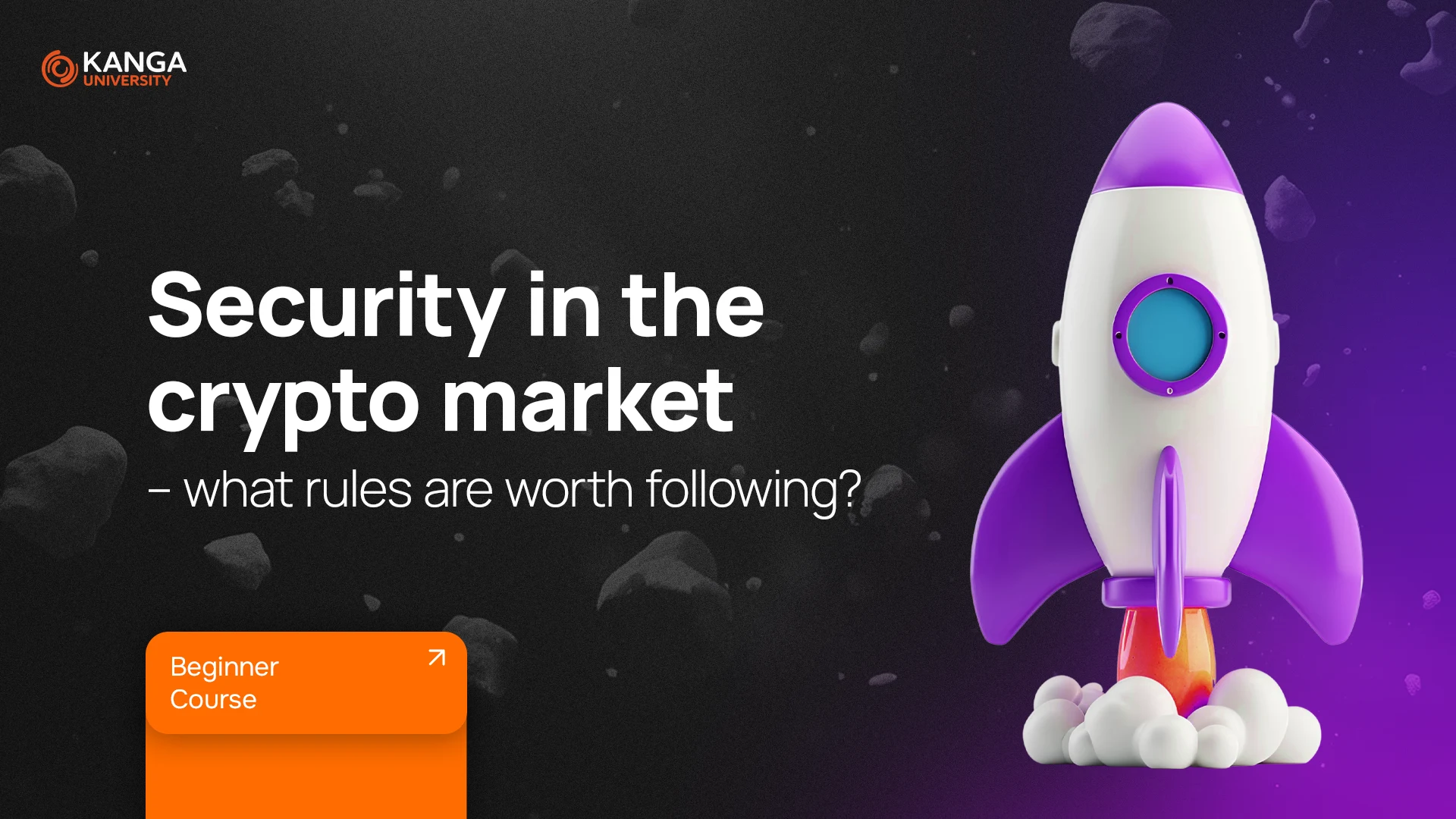
Cryptocurrencies attract not only investors but also cybercriminals who are waiting for the slightest mistake to take over your funds. In the decentralized financial world, you alone are responsible for protecting your assets. That’s why it’s crucial to understand the basic security principles and make informed investment decisions.
In today’s lesson, we’ll cover the key threats in the cryptocurrency space, explain how to avoid them, and provide practical tips to help you protect your funds effectively.
The most common threats in the crypto world
While cryptocurrencies offer freedom and decentralization, they also come with unique risks that don’t exist in traditional finance. Here are some of the biggest threats:
1. Exchange hacks
Cryptocurrency exchanges are prime targets for cyberattacks because they store large amounts of users’ funds. Over the years, several exchanges have lost billions of dollars to hackers, leaving investors with no way to recover their assets.
Example: In 2014, the Mt. Gox exchange lost 850,000 BTC, which today would be worth billions of dollars.
How to protect yourself?
- Store most of your funds in private wallets, not on exchanges.
- Use only reputable exchanges with strong security measures.
- Check if the exchange offers fund insurance in case of a hack.
2. Phishing and email scams
Cybercriminals often impersonate well-known exchanges, crypto wallets, or investment projects to trick users into revealing their login credentials.
Example: Scammers may send an email that looks like an official message from an exchange, asking you to log in via a fake link. Entering your credentials gives hackers direct access to your account.
How to protect yourself?
- Never click on links in emails unless you’re absolutely sure they are legitimate.
- Always double-check website URLs before logging in.
- Enable two-factor authentication (2FA) for added security.
3. Fake investment schemes and Ponzi scams
From time to time, projects emerge in the crypto space promising guaranteed high returns with little to no risk. In reality, these are scams that operate as Ponzi schemes.
Example: OneCoin was one of the biggest cryptocurrency scams in history, causing investors to lose billions of dollars.
How to protect yourself?
- If something sounds too good to be true, it’s probably a scam.
- Avoid projects that lack transparency and have anonymous founders.
- Verify investments by checking the project’s documentation, expert opinions, and background of its creators.
4. Private key and seed phrase theft
Your private key is the only way to access your cryptocurrencies. If you lose it or someone steals it, you will permanently lose your funds with no way to recover them.
How to protect yourself?
- Never share your private key or seed phrase with anyone.
- Store your recovery phrase in a safe offline location, preferably written on paper and kept in a secure place.
- Avoid storing private keys in cloud services or on internet-connected devices.
How to secure your cryptocurrencies?
Account security
- Use strong, unique passwords for every exchange and crypto wallet.
- Utilize a password manager to prevent using the same login credentials across multiple platforms.
- Enable two-factor authentication (2FA) on all accounts related to your crypto investments.
Secure crypto wallets
A cryptocurrency wallet is your digital safe. Choosing the right wallet depends on the level of security you need.
- Hardware wallets (cold wallets) – the safest option for long-term storage. Examples: Ledger, Trezor.
- Mobile and desktop wallets (hot wallets) – convenient for daily transactions but more vulnerable to attacks. Examples: Trust Wallet, MetaMask.
- Paper wallets – physical printouts of private keys with no internet exposure.
Safe crypto storage practices
- Do not store all your funds on a single exchange or wallet.
- Regularly back up your private keys and seed phrases.
- Use encrypted devices to store sensitive information securely.
Transaction security
- Always double-check wallet addresses before sending cryptocurrencies.
- Perform small test transactions before sending large amounts.
- Avoid using public Wi-Fi networks when logging into exchanges or wallets.
Summary
Cryptocurrencies offer tremendous opportunities, but they also come with risks. A conscious approach to investing and following security best practices will allow you to enjoy profits while minimizing the risk of losing funds.
Key takeaways:
- Never share your private key or seed phrase with anyone.
- Use hardware wallets for secure long-term storage.
- Enable 2FA and use strong passwords for all crypto accounts.
- Be cautious with investment offers that promise unrealistic profits.
- Stay updated with the latest developments in cryptocurrency security.
Explore the world of cryptocurrencies with Kanga Exchange